Stem Cells and Cancer
- Cell and Tumor Biology

Prof. Dr. Andreas Trumpp
Division Head "Stem Cells and Cancer", Managing Director of Stem Cell Institute "HI-STEM gGmbH"
Stem cells are essential for maintaining and repairing regenerative tissues. However, genetic alterations of stem cells can lead to the generation of “cancer stem cells” (CSCs) that drive tumorigenesis and metastasis.

Our Research
Starting with mouse models, we extend our work to the analysis of primary patient samples (blood, bone marrow, tumor/metastasis samples) and link the results to clinical parameters with the goal to develop innovative strategies to detect and target cancer and metastatic stem cells and break therapy resistance (see also: www.hi-stem.de).
We are interested to unravel the molecular and cellular basis of hematopoietic stem cell (HSC) and embryonic stem cell (ESC) self-renewal. We have previously shown that the most potent HSCs are in a state of deep dormancy. In response to infections or chemotherapy mediated cell loss, dormant HSCs become activated and organize the repair of the system (Wilson, Cell 2008; Essers, Nature 2009). Using genome-wide transcriptomics, proteomics and methylome analysis, we have established the molecular landscape of HSCs and progenitors to understand the molecular basis of self-renewal and multipotency, as well as the interactions between stem cells and their niche (1). We then showed that the oncogene MYC controls dormancy of pluripotent cells in the embryo and HSCs in the adult organism. Thus, MYC is the key regulator controlling entry and exit from dormancy of normal stem cells and potentially in cancer and metastasis stem cells (2). In our MDS and AML program we study signaling networks and the role of the microenvironment for disease progression and therapy resistance (Medyouf, Cell Stem Cell 2014). In solid tumors, we have identified circulating “metastasis initiating cells” (MICs) directly from the peripheral blood of breast cancer patients, which are able to initiate new bone and lung metastasis. Their cell surface receptors CD44+MET+CD47+ offer now novel possibilities for the design of better diagnostic and therapeutic tools for breast cancer (3). In pancreatic cancer we have identified novel tumor subclasses and developed biomarkers to allow the stratification of patients. One subclass shows a widespread resistance to current therapies. This is mediated by CYP3A5, which initiates an enzymatic cascade to metabolize and inactivate the drugs. Blockade of CYP3A5 breaks resistance and sensitizes the tumors to several drugs in preclinical settings (4). We are now developing CYP3A5 inhibitors for combination therapies to target pancreatic cancers.
Future Outlook:
We functionally characterize both normal and malignant stem cells by using in vitro and in vivo approaches. We then use stateof- the-art methods to uncover the mechanisms that control and drive normal and uncontrolled self-renewal as well as therapy resistance. From model systems, we typically extend our work to the analysis of primary patient derived samples and link the results to clinical parameters with the goal to develop innovative strategies to detect and target cancer and metastatic stem cells and break therapy resistance.
In addition to his role as Head of the Division of Stem Cells and Cancer, Prof. Trumpp is also Managing Director of the Heidelberg Institute for Stem Cell Technology and Experimental Medicine, located within the main building of the DKFZ. Click here for more details.
Team
-
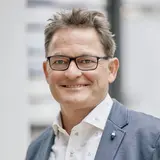
Prof. Dr. Andreas Trumpp
Division Head "Stem Cells and Cancer", Managing Director of Stem Cell Institute "HI-STEM gGmbH"
-
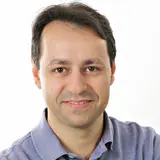
Dr. Hamed Alborzi Nia
HI-STEM Junior Research Group "Mechanisms of Cell Death and Drug Resistance"
-

Dr. Nesrine Aroua
Postdoc
-
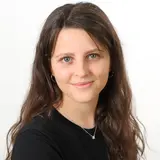
Ines Bergerweiss
PhD Student
-

Tasneem Cheytan
PhD Student
-

Dr. Sascha Henry Conic
Postdoc
-
Luca Deininger
-
Ravi Kumar Divakar
-

Dr. Elisa Donato
Postdoc
-
Daria Doncevic
-
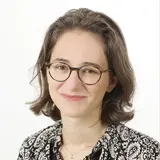
Eleonora Gelli
Postdoc
-

Dr. Lissy Gross
Postdoc
-
Isabell Guckes
-

Dr. Ewgenija Gutjahr
Postdoc
-

Dr. Kim Hoa Ho
Postdoc
-

Dr. Frank Yi-Tao Huang
MD and PhD Student
-
Marlene Hühn
-
Lea Jopp-Saile
-

Dr. Kamini Kaushal
Postdoc
-
Minyoung Kim
-
Erika Krückel
Leader Administration HI-STEM
-
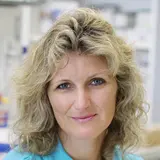
Andrea Kuck
Technical Assistant
-
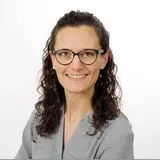
Dr. Christina Köhler
Clinician Scientist
-

Yara Lackousha
PhD Student
-

Sarah Lang
PhD Student
-

Jennifer Lewis
PhD Student
-

Dr. Shuiping Lin
Postdoc
-

Sabrina Lohr
Technical Assistant
-
Eva Luis
MD Student
-

Josipa Miskovic
Research Assistant
-
Mouhannad Moulla
-
Dr. Maria Puschhof
-

Simon Renders
Clinician Scientist
-

Sebastiaan Schieven
Postdoc
-

Markus Sohn
Technical Assistant
-
Viktoria Sokolova
-
Shubhankar Sood
-
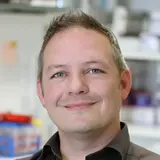
Dr. Martin Sprick
HI-STEM Research Group "Stem Cells and Metastasis"
-

Dr. Patrick Stelmach
Postdoc and Clinician Scientist
-

Natalie Stumpf
Technical Assistant
-

Karolin Stumpf
PhD Student
-
Prof. Dr. Georg Stöcklin
-

Vera Thiel
Postdoc and Team Leader
-
Vera Thiel
-
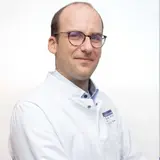
Dr. Marc Thier
HI-STEM Junior Group "Chronically progressive neurodegenerative diseases"
-
Beatrice Tröster
-

Tim Vorberg
PhD Student
-

Alexander Waclawiczek
Postdoc
-

Bettina Walter
Technical Assistsant
-

Rebecca Weber
Technical Assistant
-

Dr. Jennifer Wischhusen
Postdoc
-
Dagmar Wolf
Personal Assistant
-

Nils Wörner
PhD Student
-
Marc Wörös
-

Dr. Roberto Würth
Postdoc and Team Leader
-
Umut Yildiz
-

Petra Zeisberger
Technical Assistant
-
Chen Zhiyi
-

Dr. Basak Özata
Business Development
Selected Publications
Trumpp, A. and S. Haas
Espinet, E., et al.
Paczulla, A.M., et al.
Raffel, S. et al.
Get in touch with us

